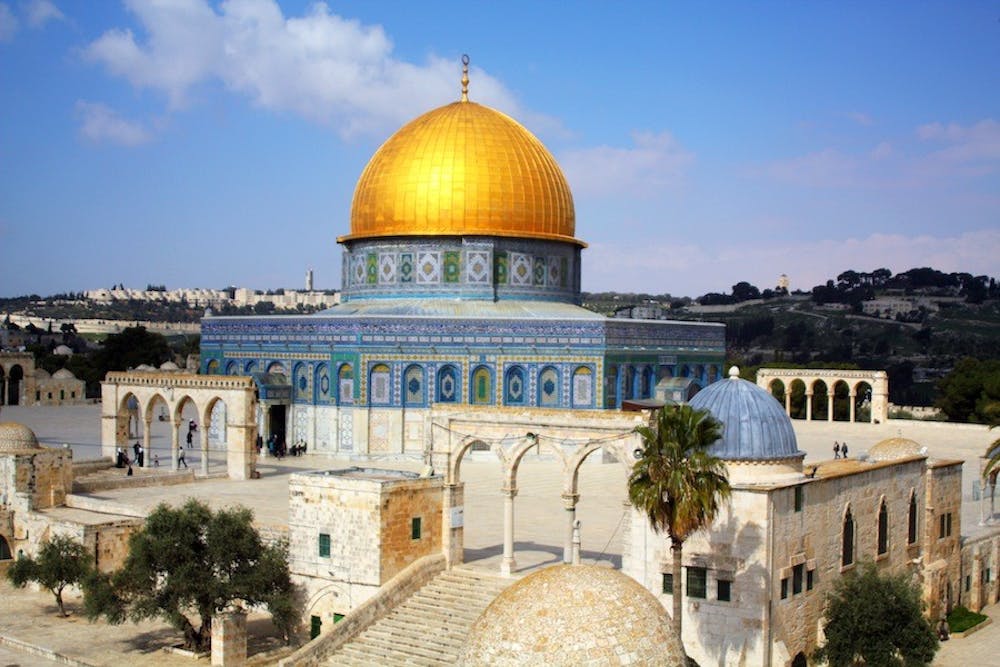By Josh Brody, The Miami Student
Jerusalem, the city which holds immense significance in the major three monotheistic religions, is also one of the world's most highly disputed territories. Jerusalem is a thriving and diverse city, full of culture, heritage and history.
On Oct. 13, 2016, UNESCO (The United Nations Educational, Scientific and Cultural Organization) passed a resolution 24-6 with 26 abstentions on "Occupied Palestine" in which it completely disregarded Jewish and Christian ties to Jerusalem's Temple Mount, referring to the holy site only by its Islamic names, the Al-Aqsa Mosque/Al-Haram AL-Sharif, meaning 'the holy sanctuary.'
The Temple Mount, considered the spiritual focal point of Judaism, is not attributed to the Jewish people whatsoever in the resolution, nor does the resolution acknowledge any legitimate Israeli claim to the holy site. The Temple Mount is considered to be the holiest site in Judaism, and the location of the first and second Jewish Temples, which stood several centuries before the creation of Islam. In Islam, it is deemed the religion's third holiest site.
Ancient Arabic writing discovered in the village of Nuba near Hebron refers to the site as 'Beit Almakdas,' referring to the Hebrew name for the Jerusalem Temple, the 'Beit HaMikdash.' Islam recognizes the historical connection and significance of the Temple Mount to the Jewish people. It is also the site where, according to the Gospel of Luke, twelve-year-old Jesus met with the Jewish theologians of the time and confounded them with his knowledge of Torah.
The resolution, which was submitted by Algeria, Egypt, Lebanon, Morocco, Oman, Qatar and Sudan, condemned Israel for its actions in and around three holy sites: the Temple Mount (the Al-Aqsa Mosque) in Jerusalem, the Tomb of the Patriarchs and Matriarchs (Al-Haram Al Ibrahami) in Hebron and Rachel's Tomb (Bilah Ibn Rabah Mosque) in Bethlehem, all in relatively close proximity to one another.
Although the resolution states that the latter two holy sites "are of religious significance in Judaism, Christianity and Islam," it blatantly denies any Israeli connection to the sites.
The resolution called on the Israeli government to return to the status quo of 2000, giving "exclusive authority" of the Al-Aqsa Mosque to the Jordanian Awqaf (religious) authority, which proves this attempt at rewriting history stems from political and religious prejudices.
For many years now, non-Muslim visitors of the Temple Mount/Al-Aqsa Mosque are allowed to visit Sunday-Thursday for a short four hour period. There is only one entrance for non-Muslims, who are forbidden to pray on the Temple Mount. By handing the Jordanian religious authorities exclusive control, opportunities for non-Muslims to visit the holiest site in Judaism would be further diminished.
The UN chief Ban Ki-moon has separated himself from the Arab states-backed resolution. According to his spokesman's office, Ki-moon "reaffirms the importance of the Old City of Jerusalem and its Walls for the three monotheistic religions" and recognizes that the Al-Aqsa Mosque is also the "Har HaBayit -- or Temple Mount -- whose Western Wall is the holiest place in Judaism."
UNESCO is known to be the "intellectual" agency of the UN. Since its creation in 1945, the UN agency has aimed to build intercultural understanding "through protection of heritage and support for cultural diversity." If UNESCO aims to protect the integrity of world heritage sites, is dismissing the Jewish connection to the Temple Mount and the people who built the Temple that once stood on it antithetical to its goals?
Ultimately, UNESCO cannot and should not attempt to influence the Israeli-Palestinian conflict through its resolutions. These holy sites have deep-rooted connections to Judaism, Christianity and Islam, yet UNESCO consequently seems to completely disregard Jewish and Christian connections to these holy sites. This can only be seen as the UN's continued promotion of an anti-Israel agenda.
If the UN is truly concerned about alleged Israeli abuses of the Palestinians, UNESCO is not the outlet to change the status quo, nor should the organization attempt to rewrite history in order to promote its anti-Zionist agenda. Doing so only adds fuel to the fire, denying Jews and Christians around the world their connection to the holiest sites in their respective faiths and enlarging the divide between the Israeli and Palestinian people.
The shared significance of these holy sites for the three monotheistic faiths, especially the Temple Mount/Al-Aqsa Mosque, can be a source of unity and peace, rather than one of violence and separation.
Vice President, Miami for Isreal
brodyja@miamioh.edu

